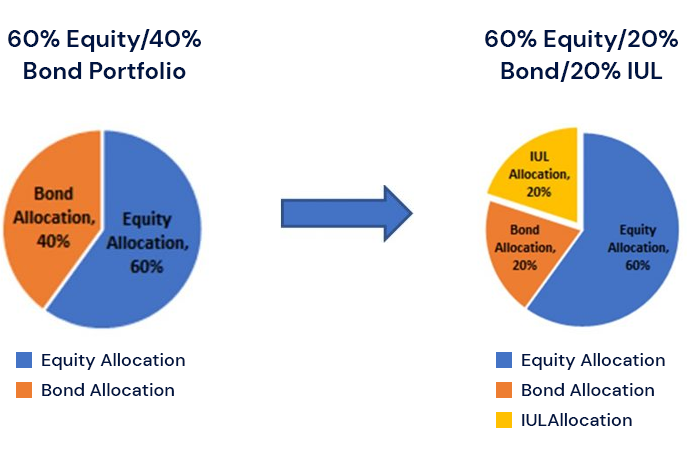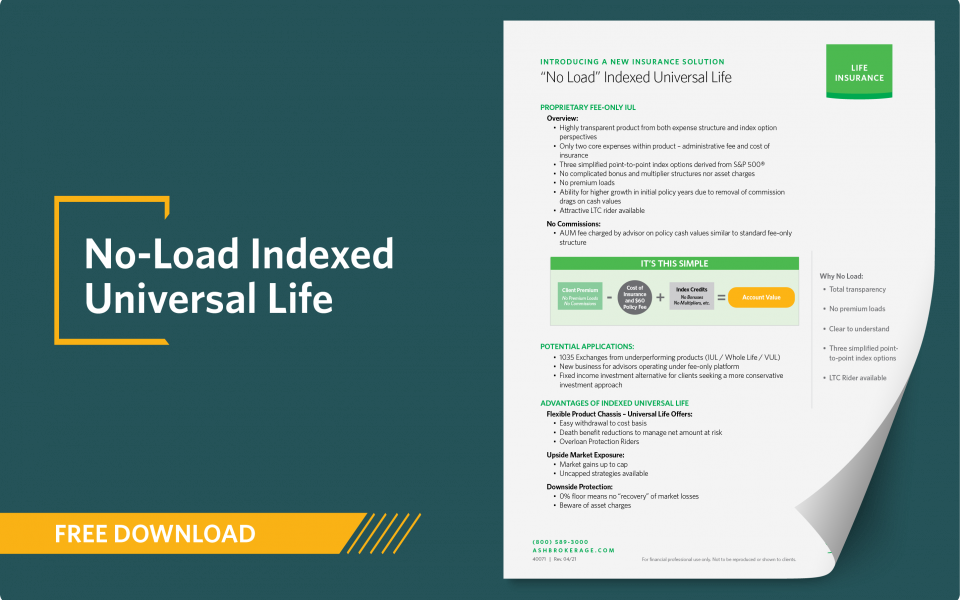All Categories
Featured
Table of Contents
1), frequently in an attempt to defeat their category averages. This is a straw male debate, and one IUL folks like to make. Do they compare the IUL to something like the Vanguard Total Amount Stock Market Fund Admiral Show no load, an expense ratio (EMERGENCY ROOM) of 5 basis points, a turn over ratio of 4.3%, and a phenomenal tax-efficient document of distributions? No, they compare it to some awful actively handled fund with an 8% lots, a 2% EMERGENCY ROOM, an 80% turn over ratio, and a terrible document of short-term funding gain distributions.
Shared funds often make yearly taxed distributions to fund proprietors, even when the worth of their fund has actually gone down in value. Shared funds not only call for revenue reporting (and the resulting annual taxation) when the shared fund is rising in worth, but can also enforce earnings tax obligations in a year when the fund has dropped in value.
That's not exactly how shared funds work. You can tax-manage the fund, collecting losses and gains in order to reduce taxable circulations to the investors, but that isn't in some way going to transform the reported return of the fund. Only Bernie Madoff types can do that. IULs stay clear of myriad tax catches. The ownership of common funds may need the mutual fund owner to pay approximated taxes.

IULs are simple to place to ensure that, at the proprietor's death, the recipient is exempt to either income or inheritance tax. The same tax obligation reduction techniques do not function almost also with shared funds. There are numerous, frequently expensive, tax traps related to the moment purchasing and marketing of shared fund shares, traps that do not put on indexed life Insurance coverage.
Possibilities aren't very high that you're going to undergo the AMT as a result of your common fund distributions if you aren't without them. The remainder of this one is half-truths at best. While it is real that there is no revenue tax obligation due to your heirs when they inherit the earnings of your IUL plan, it is likewise true that there is no income tax due to your successors when they acquire a common fund in a taxed account from you.
Universal Life Policy Vs Term
The government inheritance tax exception limitation mores than $10 Million for a pair, and expanding every year with inflation. It's a non-issue for the vast majority of medical professionals, a lot less the rest of America. There are much better methods to avoid inheritance tax issues than purchasing financial investments with low returns. Common funds might trigger income taxes of Social Safety benefits.

The growth within the IUL is tax-deferred and may be taken as free of tax income using car loans. The plan proprietor (vs. the common fund supervisor) is in control of his/her reportable earnings, hence enabling them to reduce or even eliminate the tax of their Social Safety advantages. This is wonderful.
Below's another very little concern. It holds true if you acquire a mutual fund for claim $10 per share right before the circulation day, and it disperses a $0.50 distribution, you are then mosting likely to owe taxes (probably 7-10 cents per share) in spite of the reality that you haven't yet had any gains.
Yet in the end, it's really regarding the after-tax return, not just how much you pay in taxes. You are mosting likely to pay more in tax obligations by utilizing a taxed account than if you buy life insurance policy. You're also probably going to have more money after paying those tax obligations. The record-keeping needs for owning common funds are substantially more complicated.
With an IUL, one's records are maintained by the insurance business, copies of annual declarations are mailed to the proprietor, and distributions (if any kind of) are totaled and reported at year end. This one is also sort of silly. Certainly you need to maintain your tax documents in instance of an audit.
Equity Indexed Life
All you have to do is shove the paper right into your tax folder when it turns up in the mail. Rarely a factor to purchase life insurance. It's like this guy has actually never bought a taxable account or something. Common funds are generally part of a decedent's probated estate.
Furthermore, they undergo the delays and expenses of probate. The proceeds of the IUL plan, on the various other hand, is constantly a non-probate distribution that passes beyond probate directly to one's called beneficiaries, and is as a result not subject to one's posthumous creditors, unwanted public disclosure, or similar delays and expenses.
We covered this under # 7, however simply to evaluate, if you have a taxed mutual fund account, you should put it in a revocable trust (or perhaps less complicated, use the Transfer on Fatality designation) in order to avoid probate. Medicaid disqualification and life time income. An IUL can provide their proprietors with a stream of revenue for their entire lifetime, no matter how much time they live.

This is beneficial when organizing one's affairs, and converting possessions to earnings prior to an assisted living home arrest. Mutual funds can not be converted in a similar manner, and are often thought about countable Medicaid properties. This is one more silly one supporting that bad individuals (you recognize, the ones who need Medicaid, a government program for the bad, to pay for their assisted living facility) ought to utilize IUL instead of shared funds.
Eiul Life Insurance
And life insurance policy looks terrible when compared rather against a retired life account. Second, people that have money to acquire IUL above and past their retired life accounts are mosting likely to have to be terrible at handling money in order to ever get Medicaid to pay for their assisted living home prices.
Chronic and incurable illness cyclist. All policies will permit an owner's very easy accessibility to money from their policy, often waiving any abandonment fines when such people endure a severe ailment, need at-home care, or become confined to an assisted living home. Common funds do not supply a similar waiver when contingent deferred sales fees still relate to a shared fund account whose proprietor needs to market some shares to money the prices of such a stay.
Life Insurance Flexible
Yet you get to pay even more for that benefit (cyclist) with an insurance coverage policy. What a large amount! Indexed universal life insurance policy supplies fatality advantages to the beneficiaries of the IUL owners, and neither the proprietor nor the beneficiary can ever lose cash as a result of a down market. Shared funds supply no such guarantees or death benefits of any kind.
Now, ask yourself, do you actually need or want a survivor benefit? I absolutely don't require one after I get to economic self-reliance. Do I want one? I mean if it were cheap sufficient. Certainly, it isn't low-cost. Generally, a purchaser of life insurance pays for truth price of the life insurance policy benefit, plus the costs of the plan, plus the earnings of the insurance provider.
History Of Universal Life Insurance
I'm not totally sure why Mr. Morais included the entire "you can't lose cash" again here as it was covered quite well in # 1. He simply intended to duplicate the most effective marketing factor for these points I mean. Once more, you do not lose small bucks, however you can shed genuine dollars, in addition to face severe possibility expense due to low returns.

An indexed global life insurance policy policy owner may trade their plan for a totally various plan without setting off income tax obligations. A common fund owner can not relocate funds from one shared fund company to another without selling his shares at the former (therefore setting off a taxed event), and redeeming new shares at the latter, usually based on sales fees at both.
While it holds true that you can exchange one insurance plan for one more, the reason that people do this is that the very first one is such a dreadful plan that also after acquiring a new one and going via the very early, negative return years, you'll still appear ahead. If they were sold the appropriate policy the very first time, they should not have any kind of need to ever trade it and experience the early, unfavorable return years again.
Latest Posts
Iul Insurance Pros And Cons
Allianz Iul
Why Indexed Universal Life Insurance Might Be New 401k